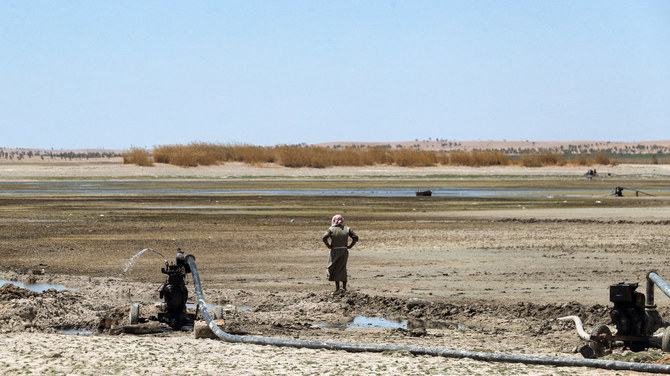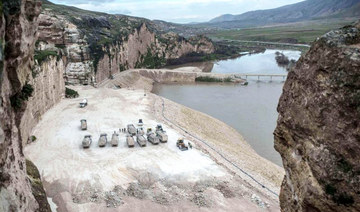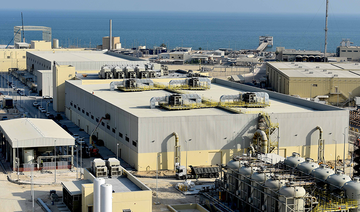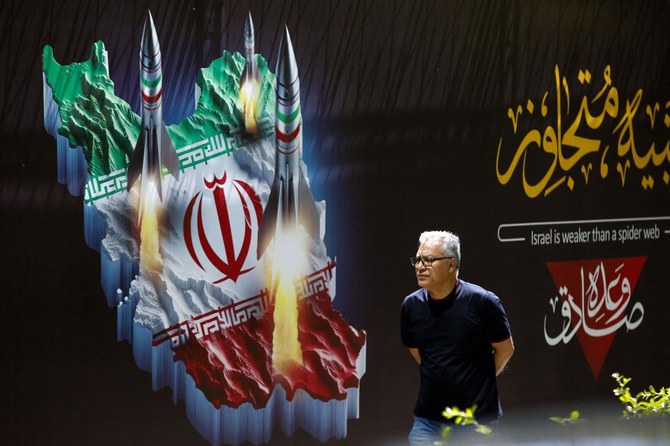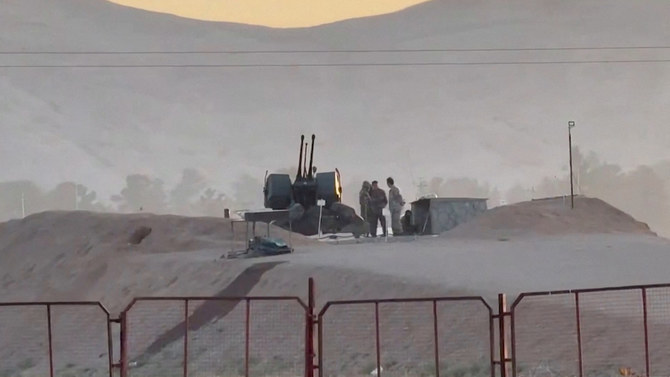DUBAI: Low rainfall, limited freshwater from rivers and lakes, and dwindling non-renewable groundwater reserves make the Middle East the most water-stressed region on earth.
Meanwhile, demand is soaring — and likely to rise even further given population growth and economic development — leading to some of the highest per-capita water consumption rates in the world.
So, the region needs to get better at preserving its limited water and becoming more efficient at using what it desalinates. The good news is that the solutions are not beyond human imagining or economic feasibility.

In fact, some may be simple and affordable. A 2020 report by the non-profit World Resources Institute found that the cost could be as low as 1 percent of Saudi Arabia’s annual gross domestic product. Innovations such as solar-powered desalination, raising crop productivity “per drop,” and wastewater treatment and reuse hold great promise.
Matthew McCabe, a professor of water security and remote sensing at King Abdullah University of Science and Technology, is working with the Saudi government to optimize water use for food production. Central to this is careful monitoring of water use in agriculture, the sector that consumes the most water in the Middle East and North Africa region.
The World Bank estimates that agriculture consumes about 70 percent of freshwater taken from ground or surface water sources globally. The share is even higher in the MENA region, touching 80 percent. In Saudi Arabia, about 90 percent of freshwater is used for agriculture.
“We’re looking at doing more accurate accounting of agricultural water use throughout the country and it must be done throughout the region,” McCabe said.
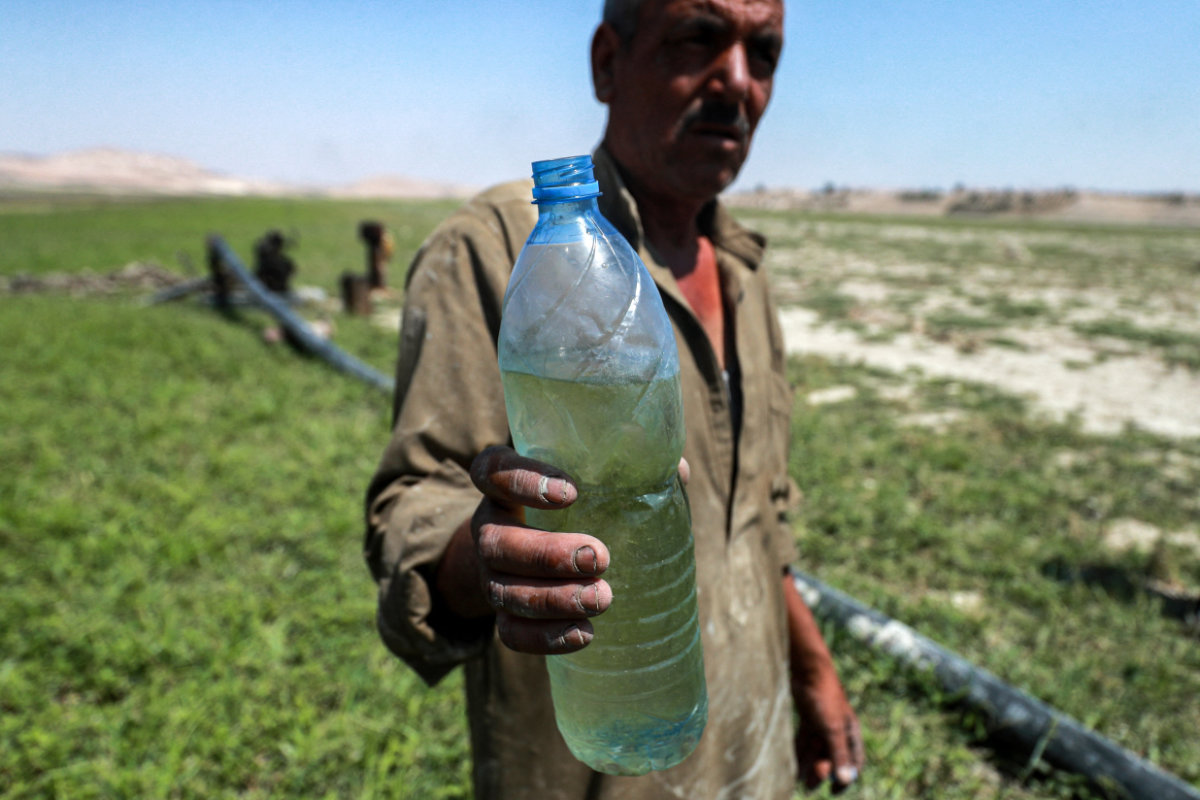
Agriculture consumes about 70 percent of freshwater taken from ground or surface water sources globally. (AFP file photo)
“So, the more efficiently and sustainably we can use water for food production, the better we can move toward more responsible use of our water resources. The big problem is that we’re not using desalinated water. We’re using groundwater which is not being replaced.”
According to Vangelis Constantianos, regional coordinator at the Global Water Partnership, an advocacy and skills-building network, efforts to boost food security through expanded agricultural production in an arid environment put great stress on resources if “smart” water-saving technologies are ignored.
Constantianos says desalination poses challenges of its own in the form of high energy costs and greenhouse-gas emissions. Brine discharge also harms the environment, while too much subsidized water hides the real cost of production.
“An amply provided water supply may not assist in developing a society that is conscious of the challenge and its responsibility to conserve water for its needs and nature,” he said.
That responsibility is increasing as the issue of water scarcity becomes more pressing.
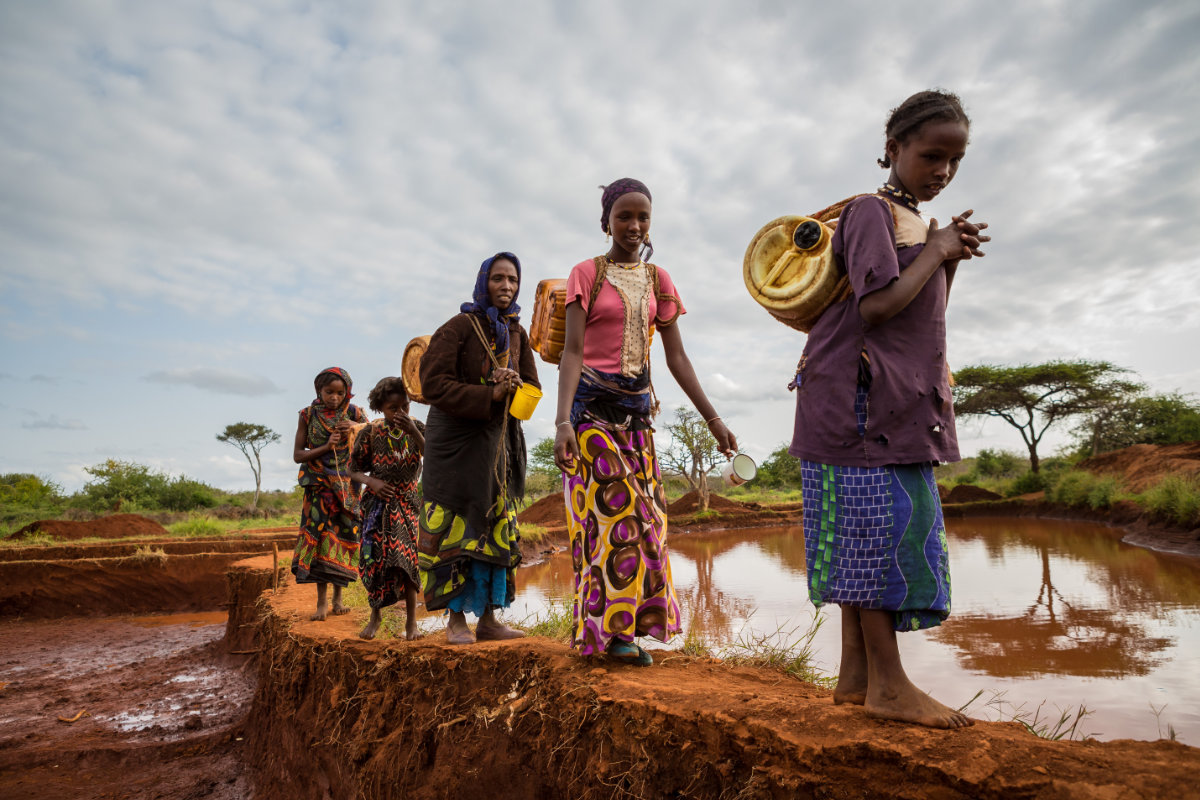
Women and young village girls collect water from a rain water pool which is purified before use with tablets in Gayo village, Ethiopia. ((Shutterstock)
The WRI report estimated that 3 billion people around the world lack basic hand-washing facilities, a quarter of the world’s population lives in countries facing high water stress, and there are more than 500 “dead zones” — oxygen-poor areas in the oceans caused by untreated wastewater.
In the MENA region, environmental pressures and water scarcity are contributing to instability and forced migration. Large parts of Yemen, the Khuzestan province of Iran, Sudan and now Lebanon are facing severe water problems that have provoked anti-government protests.
“Crops depend entirely on agriculture in the arid region, and officials say that supporting agriculture stems rural migration and reduces the need to use hard currency for food imports,” The Economist said in July.
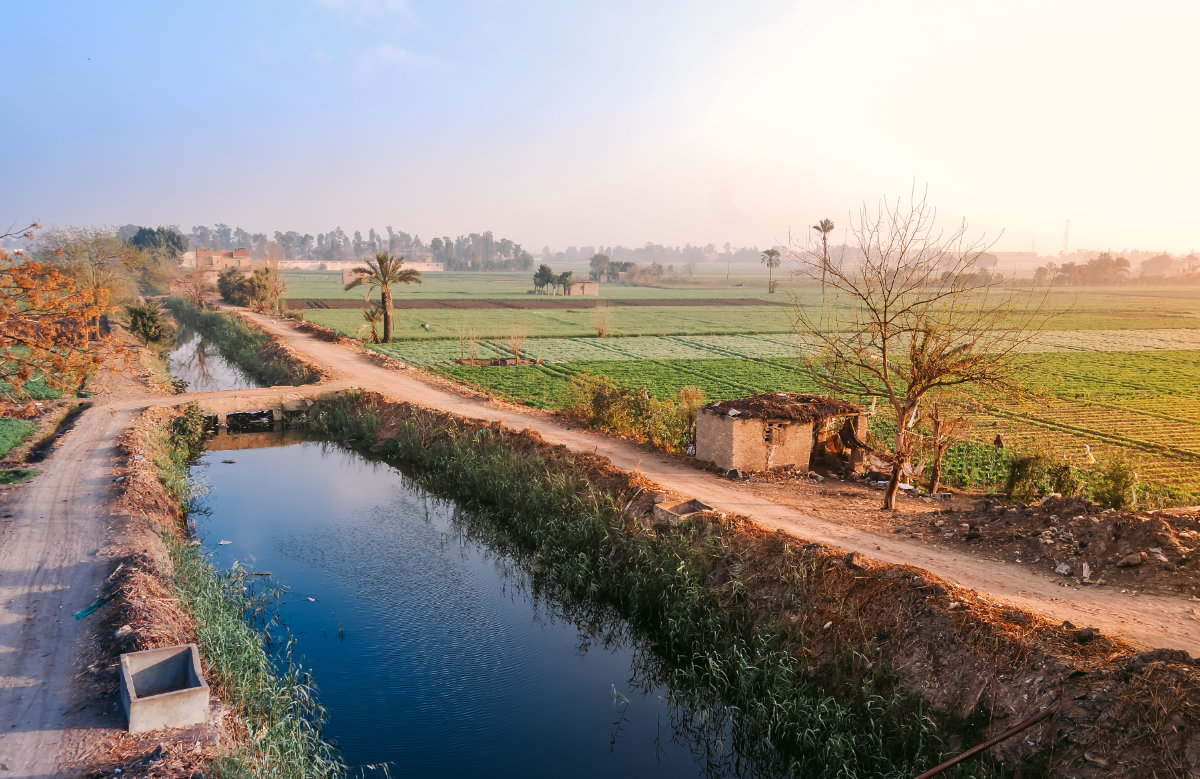
A sunrise view for a canal coming from the Nile River passing through fields of farm lands in rural road Al Mehwar, Giza, Egypt. (Shutterstock)
On the downside, the magazine said, “subsidies have long encouraged farmers in the region to waste water on a massive scale; still, leaders like to use cheap water as a way to buy support or further their interests.”
The World Bank estimates that by 2050 the impact of water scarcity may cost MENA countries between 6 and 14 percent of GDP. So, the region cannot afford business as usual.
Omar Saif, manager of Middle East Advisory Services at WSP, an engineering consultancy, said that breaking down the elements of water security needed per country can help build a clearer image of where investment should be directed. This can be particularly useful if applied to national budgeting.
Focusing on share of GDP, rather than absolute costs, helps to identify investment gaps that persist on a country-by-country basis, he said.
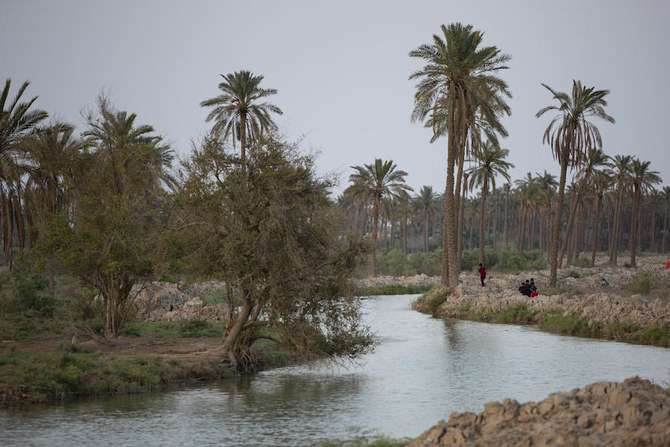
The Tigris and Euphrates rivers are Iraq’s main water source and essential for agriculture. (AFP file photo)
“The fact that we see under-developed countries requiring much larger shares of their GDP to address water security shouldn’t be taken as a sign of futile efforts, but rather a call to action for the international community to coordinate the allocation of their international development aid budgets,” he told Arab News.
Saif said that the WRI report sent a clear message that sustainable water solutions are within reach. However, “to reach this desired end-state will require collective action from public and private sectors.”
Water charges need to reformed and greater trans-boundary cooperation promoted. New academic programs focusing on water security and improved farming techniques can also help. “Most agricultural departments are antiquated and do not integrate the role of climate resilience, technology and business into agri-programs,” he said.
FASTFACTS
17 Countries that need 8 percent+ of GDP to deliver sustainable water management.
10 percent Global population share of the 17 countries.
75 Countries that can achieve sustainable water management for less than 2 percent of GDP.
As one of the largest consumers and producers of water in the world, Saudi Arabia is taking the initiative via mega-projects such as NEOM, the new city in the Kingdom’s northern desert that promises zero liquid discharge and uses clean energy to produce freshwater.
Saudi Arabia is also investing in more efficient desalination processes and more sustainable approaches that have the potential to be exported abroad.
But the bill is far from cheap. McCabe said that while 1 percent of GDP does not sound like a lot, in Saudi Arabia that equates to about $10 billion every year for 15 years, totaling $150 billion. In other MENA countries, the cost is around 4 or 5 percent of GDP. Recycling, therefore, is critical to an improved outcome.
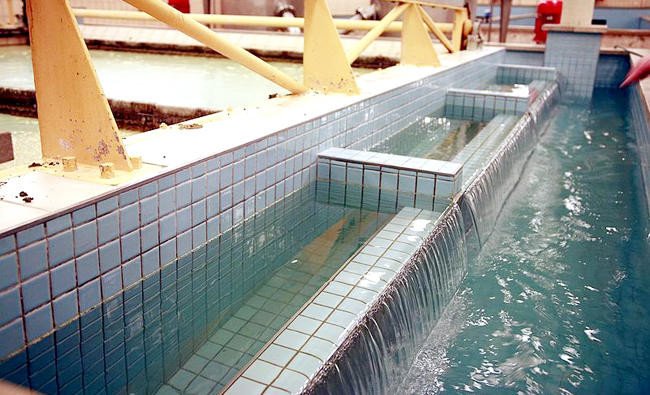
Waste-water treatment plant in Saudi Arabia. (AN file photo)
“Saudi Arabia is also taking a good governance approach to water usage with Vision 2030 to dramatically increase water reuse,” McCabe told Arab News. “We need to recycle that water for other purposes, whether it’s drinking, for agriculture or food production, rather than sending it off into the ocean. We need to close the cycle.”
To that end, investing in municipal waste water could be opened up to the private sector, the experts said. A recent World Bank/IFC analysis found that if cities in emerging markets focus on low-carbon water and waste as part of their post-COVID-19 recovery, they could catalyze as much as $2 trillion in investments and create over 23 million new jobs by 2030.
While there are some signs of progress in the region, often supported by international efforts, the pace of change is not fast enough to address the growing challenges. “Lack of suitable governance and investment frameworks, and consequently of financing, plays an important role, including resulting in much more limited involvement by the private sector than required,” Constantianos said.

Iraqi boys swim with a herd of buffaloes in the Diyala River in the Fadiliyah district, northeast of Baghdad on August 2, 2021. (AFP)
While some solutions may be simple and affordable, design and implementation require a sophisticated and often tailor-made approach.
“Water flows everywhere, through economic sectors, institutions and social relations. Thus, addressing water scarcity and climate impacts requires integrated management for all natural resources at appropriate level, and not for water alone,” Constantianos said.
“We have no choice but to address this because they’re going to be long-term projects,” he said. “It’s going to take many decades to develop the infrastructure to support this.”
But unrest prompted by construction of dams, corruption, mismanagement and water shortages is already triggering political unrest and could lead to wars in the worst scenario. As The Economist warned: “Without better (water) sharing, management and investment, millions of the region’s residents risk becoming climate refugees.”
___________________
• Twitter: @CalineMalek






